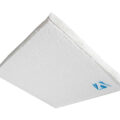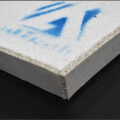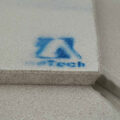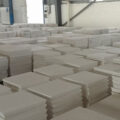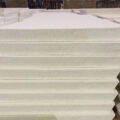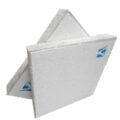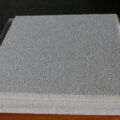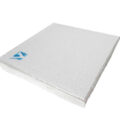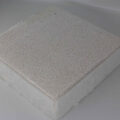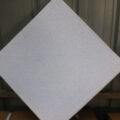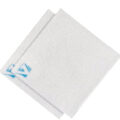In order to meet the continuous improvement of the quality of aluminum castings, the use of ceramic foam filters CFF has become more and more important. Ceramic Foam Filter Kitimat Aluminum is widely used in aluminum foundries and smelters.
The existence of non-metallic inclusions is not conducive to the production of high-quality castings. Achievable mechanical properties are a key aspect, and it is easy to lose the presence of inclusions and oxide scale. The mechanical properties of high-strength aluminum alloys are very sensitive to nicks or defects in the casting.
Causes and solutions of aluminum foil rolling defects
1. The aluminum melt is not completely filtered, degassed, and slag removed before casting, and the slag inclusions such as alumina and slag are brought into the aluminum melt, and finally into the casting slab.
2. When replacing high-quality ceramic filters, slag inclusions such as alumina and slag are brought into the aluminum melt.
3. The purity of the aluminum melt is too poor, and there are too many non-metallic foreign objects to complete degassing and slag removal.
Ceramic Foam Filter Kitimat Aluminum filter effectively reduces the content of inclusions.
When using Ceramic Foam Filter Kitimat Aluminum, a cast filter is installed in the filter foundry.
Pour the molten aluminum through the ceramic foam filter into the filter box. The filter captures the fine particles in the molten metal.
After the casting operation is completed, the aluminum slag remaining in the ceramic filter forms almost solid aluminum flakes.
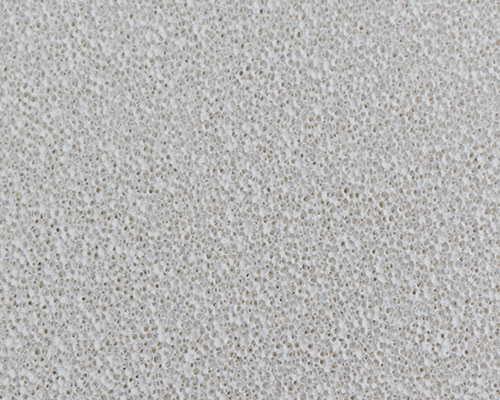
When Rio Tinto modernized its Kitimat aluminum smelter in British Columbia, its goal was not only to increase production, but also to create an environmentally sound and safer facility.
result? Kitimat is now one of the most efficient and lowest cost smelters in the world.
Bechtel partnered with Rio Tinto to upgrade the facility, which originally began production in 1954, is one of the largest private construction projects in British Columbia’s history. Modernization adopts the latest development of our customers’ most advanced AP40 technology. In addition to creating more energy-efficient facilities, we also helped implement digital monitoring and computer control systems, more advanced cleaning systems, and higher levels of material recycling to maximize raw material production and recycling opportunities.
As a result, production has increased to 420,000 metric tons per year, and the total emissions of the smelter have been reduced by nearly 50%, including approximately 500,000 metric tons of greenhouse gases per year.

